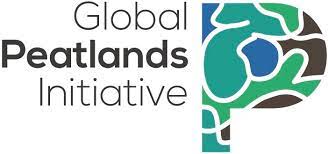.png)
Learning from experience doing peatland research in developing countries
This event has now finished.
Event details
Learn from three researchers who have spent their careers working in developing countries. They will discuss challenges accessing sites, navigating cultural sensitivities and dealing with conflict. The session includes a case study of research on GHG emissions and land subsidence and flooding associated with plantation on tropical peatland, that led to negative reactions and other unforeseen negative consequences.
About the trainers
Professor Sue Page holds a Chair in Physical Geography at University of Leicester. Her research focuses on peatland ecosystems, both in the UK and the tropics, focusing on peatland land use and management, including consequences for greenhouse gas emissions and land subsidence. She has been a partner in several multinational research programmes and is currently investigating the environmental impacts of agricultural land uses on peat soils, including the burdens caused by peat fires in Indonesia. She has a strong interest in opportunities for climate change mitigation that ensure beneficial outcomes for people and planet. Find out more about her work or follow her on Twitter.
Dr Ritesh Kumar is Director of Wetlands International South Asia. He has led integrated management planning for several wetlands in South Asia region, and coordinated multidisciplinary projects on wetlands assessment, ecosystem services evaluation, water management, sustainable livelihoods, disaster risk reduction and climate change adaptation. He has been involved in several global, regional and national assessments. These include being a Lead Author of Global Wetlands Outlook (2018), and Coordinating Lead Author on the Global Peatland Assessment and IPBES Regional Assessment on Status of Biodiversity and Ecosystem Services for Asia and Pacific. Find out more about his work or follow him on Twitter.
Dr Rupesh Bhomia is a wetland biogeochemist at CIFOR in Indonesia. His research has focused on studying tropical freshwater swamps and coastal systems. During his PhD at the University of Florida, he studied biogeochemical transformation of nutrients in sub-tropical wetlands. Subsequently, at Oregon State University, he studied carbon sequestration and cycling in peatland swamp forests of Peruvian Amazon and coastal mangroves ecosystems of Honduras, India, Senegal, Liberia and Gabon. More recently, as a climate change and blue carbon expert, he has contributed to other regional activities pertaining to national reporting of Nationally Determined Contributions (NDCs). Find out more about his work or follow him on Twitter.
About the Global Peatlands Initiative
The Global Peatlands Initiative is an effort by leading experts and institutions formed by 13 founding members at the UNFCCC COP in Marrakech, Morocco in 2016 to save peatlands as the world’s largest terrestrial organic carbon stock and to prevent it being emitted into the atmosphere. The current greenhouse gas emissions from drained or burned peatlands are estimated to amount up to five percent of the global carbon budget — in the range of two billion tonnes CO2 per year.
Partners to the Initiative are working together within their respective areas of expertise to improve the conservation, restoration and sustainable management of peatlands. In this way the Initiative is contributing to several Sustainable Development Goals , including by reducing greenhouse gas emissions, maintaining ecosystem services and securing lives and livelihoods through improved adaptive capacity.
Find out more at: www.globalpeatlands.org
Partners



